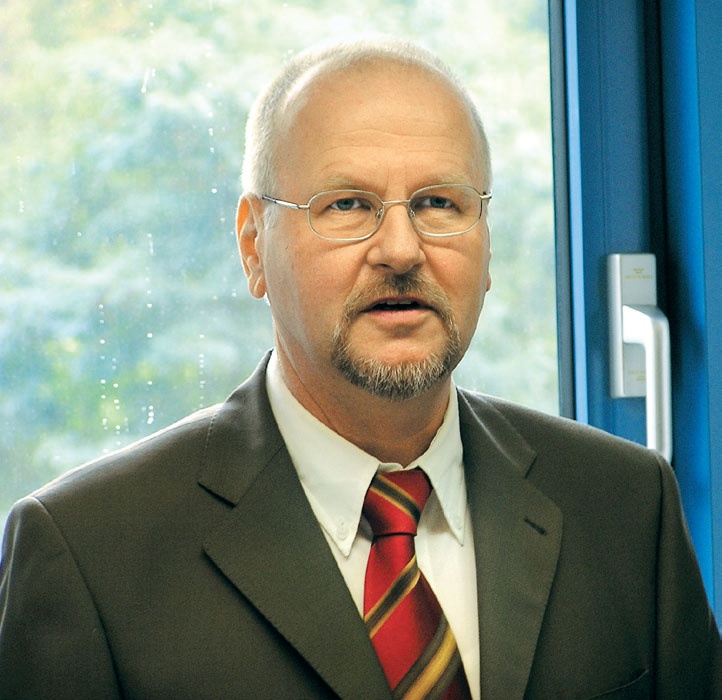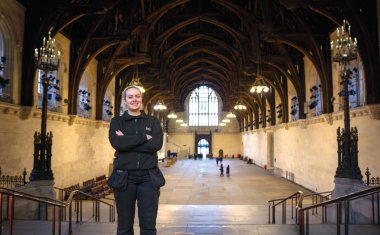Five Stars for Safety: contemporary safety and security management in good hotels
Five Stars for Safety: contemporary safety and security management in good hotels. By its very nature hotel safety must distinguish between different buildings, the type and size o...

Five Stars for Safety: contemporary safety and security management in good hotels. By its very nature hotel safety must distinguish between different buildings, the type and size of the locality as well as various types of city, conference or holiday hotels – every category requires its own individual safety concept. As well as good service, guests look for peace, relaxation and comfort in an environment that, for them, is usually unfamiliar. So increasing numbers of hotel managers have recognised that safety in the broadest sense is a good selling point.
Safety management must provide a controlled reaction to all potential disturbances, recognise potential dangers in good time and counteract them with specific countermeasures. This generates trust and protects the responsible hotel manager from potential legal consequences based on neglect. The sensitive subject of safety, particularly in a hotel environment, can be achieved by:
- regular risk analysis, testing of technical systems,
- having emergency plans for fire and catastrophe protection, bomb alerts and technical faults,
- preventative measures against theft and
- sharpening alertness of the entire staff through education and training,
- carrying out a ’safety inventory‘.
A comprehensive security and safety analysis will highlight deficiencies that could damage the image and consequently the economic success of the hotel.
Expectations and Risks
As well as having a comfortable uninterrupted stay, guests expect the management to ensure their protection in a professional manner. Safety can be jeopardised in many ways, for example, through
- technical faults,
- bad weather,
- industrial accidents,
- fire and
- crime.
Safety problems may occur with VIP visits, special events and data protection and it is therefore important to sensitise employees to their correct behaviour when interruptions occur.
Risk analysis should pose the following questions:
- what can happen?
- how high is the likelihood of occurrence?
- if it happens, what consequences will it have?
- how can damage be prevented or minimised?
A simple Christian answer to this could be: ”Trust in God“ and nothing will happen. The clever answer, however, is: ”Prevent, recognize and differentiate!“ This simple and also commercially sensible principle can be applied to all dangers and risks. The necessary measures require
- a suitable number of staff,
- modern safety and security equipment and
- flexible organisation.
Fire and Escape
A hotel fire is, without doubt, the worst-case scenario with the most consequences. Legal regulations for special purpose buildings are therefore particularly comprehensive. Hotels and conference centres must be organised so that
- the start and spread of a fire are prevented,
- sufficient escape and rescue routes are available and
- should a fire break out, that effective extinguishing and rescue actions can be carried out.
Regular fire prevention inspections, fire protection information for staff and guests as well as evacuation plans and alarm signal notices are obligatory. Additional fire alarm equipment, automatic and small hand extinguishers may also be necessary. The quantity, layout and specification of emergency exits is defined down to the last detail both by legal regulations and insurers, and obviously these escape and rescue routes must always be free of obstructions and clearly marked.
Mine and Yours
If hotels have no possibility of access control they become quasi public space. It is possible for an outsider to move throughout the entire house without hindrance. This also makes it easier for guests (and staff) to steal. And not only small things disappear. Guests (and staff) steal everything that is not ’battened down‘ from the bedrooms, the conference rooms and lounge areas.
Large hotels lose sixfigure sums every year through guest and staff theft. These are some of the things that take a walk:
- cash and jewellery,
- hand towels, dressing gowns,
- accessories, pillows,
- TVs, lamps,
- bedclothes, pictures,
- beamers and microphone systems,
- exhibition items and luggage.
Of course, hotels are also the preferred haunts of professional pickpockets and fraudsters. This is particularly so at busy times, during exhibitions and events. If no access control is in place, it happens time and time again that thieves gain access to rooms in a number of different ways. Additional electronic article security and inventory systems can help here.
Special security labels are either sewn or stuck on out of sight, depending on the system. If a protected item leaves the hotel, an alarm is activated. Intelligent inventory security systems also use transponder technology. The stored information can be interrogated at any time via readers.
VIPs and Threats
Over 10,000 bomb threats are registered in Germany every year. Unfortunately hotels are often the targets of these. Anyone who has experienced a bomb threat knows that anything from helplessness through improvisation to taking decisions on pot luck is possible. In many cases one is reliant on the police because it has not yet been recognised that most of the preparation takes place behind your own doors.
Bomb threats are tricky crimes at a distance that offer very few leads, tracks or opportunities for solving. Mostly just the call itself, usually at peak time or when an event is taking place, gives some points of reference for an analysis of the threat. IT is recommended to keep a special form to hand at reception, at the telephone operator‘s workstation and in the manager‘s office so that the question of the seriousness of the threat can be rationally answered.
In addition to details of the call and the threat verbatim, prepared questions should be asked that may provide the police with valuable information. In any event it is recommended to contact the police immediately and then to assess the situation and a possible reason for the threat (VIPs, conference, trouble with guests or staff).
The hotel manager and his security officer then decide whether the hotel should be completely evacuated, whether the entire building or just the public areas (or event venue) or maybe just a specific part of the building should be discreetly searched for suspicious objects. It is obvious that, should something suspicious be discovered, the entire building should be evacuated and a decision taken together with the police about further action.
Preventative measures are particularly beneficial during important events, international congresses, receptions with VIPs or annual general meetings. Timely searches, access control, parking surveillance, restrictions in the public areas, the use of video surveillance and trained staff can prevent or quickly remove interruptions or threats during the event.
Tactful and Assertive
A hotel is quasi public space in many areas. Everyone has access, and whoever is wearing a suit and tie won‘t initially stand out but will be considered to be a guest. Hotel foyers, the bars and restaurants can be a playground for thieves, in particular when the house is full. Pickpockets, swindlers, lodging defrauders and high-class prostitutes are hard at work quicker than one realises. Apart from using the many technical security and surveillance options, the classic house detective has not been superseded.
A discrete security employee for internal investigation can be a sensible investment in many larger establishments. Employees of good detective agencies and security companies as well as retired criminal policemen, who either regularly work for a few hours or on demand with assertiveness, tact and without causing a fuss are suitable for this task. That can save the hotel management a lot of unnecessary trouble.
Compared to external staff, ones own detectives have the advantage that they know the house, the procedures, all weak points and the employees very well. Their work also has a preventative effect.
Locks and Safes
A tested and standardised cylinder lock is without doubt the most widespread system to protect doors from unauthorised opening. Although the locking principle has remained the same for decades electronics has also found its way into this field in recent years. Specifically in hotels there are a number of advantages in using a mechatronic or electronic lock:
- simple deletion of a lost key or code card without changing the lock,
- simple alteration of access authorisation and uncomplicated extension of the system,
- time-based restrictions on access authorisation,
- recording of the last usage,
- the incorporation of chargeable services in hotels can also be administered with cards.
Such lock systems are particularly sensible in the hospitality industry as keys often get ’out of control‘ there. Substantial hotel safes belong to the standard equipment of every hotel. They should be protected against manipulation and forced entry. They protect guests‘ valuables. The use of hotel safes in bedrooms has significant advantages over a central locker system or rental box facility in the reception area. The potential risk of a break-in is distributed over numerous locations within the building.
Customers like safes in their rooms because these provide more discretion and independence of regular daily routine within the hotel. Hotel safes are tested in Germany and throughout Europe to various security levels, with a correspondingly different level of insurance protection, to provide a uniform security standard and guarantee not only the guests but also the insurers a constant quality and a definite level of break-in or sometimes also fire protection.
Most room safes, however, are simple single-wall boxes without any certification. Only certified valuables safes or those with additional fire protection should be used at reception and in the administrative areas. All hotel safes that correspond to a particular standard are clearly marked with a sticker on the inside of the door.
Video Technology and Discretion
Hotel managers can expect, as well as improved security, more efficient coordination of workflow by using video technology. For example, it can easily be seen what is going on at the pool or in the foyer and whether staff attendance may be necessary there. Also goods delivery can be very effectively observed and checked. The responsible staff are also aware of everything that is going on at reception, in the underground garage or in event areas. It is also possible to make recording to analyse events later.
Every hotel presents its own set of problems for video-supported surveillance. A customised video management system helps to prevent theft and other crimes, improves the security of both guests and staff and has a preventative effect. Very beneficial are cameras at the main entrance, at all side entrances, delivery gates and staff entrances, in the reception area and on the ramps to car parks or underground garages. In larger establishments, cameras can be advantageous near meeting rooms, in the grounds of the building as well as in corridors and hallways.
The best solution is a security management system that meets the needs of all facility management functions (video management, inventory security, break-in/fire alarm technology and cash supervision) and can be monitored and operated from one terminal. A guest will accept this discrete surveillance for his own protection also because he knows that his privacy is protected and that the staff maintain discretion about all personal matters.
The same applies to the handling of personal data. The staff must also know that the unauthorised saving and/or passing on of private and company addresses, the length of stay, personal preferences and telephone call data of guests is forbidden. Incidentally, a guest has a legal right to prevent the use of his data for advertising, market research or opinion poll purposes.
Staff and Services
All employees must be regularly reminded of the subject of safety and security and made aware of their responsibility toward the guests. Questions with regard to evacuation of the hotel in the case of fires or other catastrophes or the correct behaviour during bomb threats must be answered. Similarly hotel employees must know the procedures and their own duties if they themselves discover a fire, a burst water pipe, a power failure, theft or other forms of crime.
It is necessary for the hotel management to advise both new employees and existing staff in regular instruction courses and to carry out checks. Well-known security service providers have the know-how, the staff and technology to carry out various security tasks. For example, reception services, object and event protection, investigation tasks, VIP service and hotel security in connection with night-audit in four and five star hotels. It is essential for security service providers in the hostelry industry to employ staff with good instincts and knowledge of human nature.
The motto of ”the customer is King“ must always be in the foreground if the security staff are called upon to handle conflicts. These requirements differ considerably in terms of appearance, composure and service from general work in security services.
Route and Destination
Apart from quality, comfort and commerciality, one important criterion of good hotels is the correct dose of security. The management must constantly keep this fact and this target in mind and turn it into the company philosophy. This can be achieved by using current risk analysis by professionals, the latest security technology, training and staff checks, and has the same level of importance as friendly hospitality and good service.
The route to this destination also leads via the correct attitude of all employees. Preventative measures against operational interruptions, fires and crime, that belong to international standards these days cannot be implemented without good staff and professional staff management with regard to security. If this target is aimed for and reached then there are ’five stars for safety‘.
Heiner Jerofsky
Criminal Councillor










